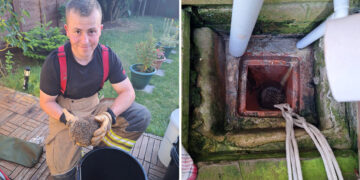Like most news organisations, we report from courtrooms on a regular basis.
Following the strict rules and laws in place surrounding reporting from court, our accredited journalists provide the public with important updates on criminal cases heard at Wiltshire’s crown and magistrates’ courts in Swindon and Salisbury.
Before we answer some of the common questions we receive from those involved or connected to a court case, here are three key facts you should know:
1. In a courtroom, journalists have absolute privilege. This means we can report whatever is said by anyone there – including defendants, victims, witnesses, prosecutors, solicitors, magistrates, judges or members of the public. Journalists are immune from liability for defamatory statements made by others during proceedings.
2. Journalists are, in most circumstances, allowed to publish personal information about anyone who attends court – this can include their address, date of birth or photograph.
3. Stories should be balanced, but journalists are allowed to choose what information they report. There is no requirement to report everything said during a hearing.
Our right to publish court results
The defendant’s name, age, address and details of the charge(s) and sentence are published in accordance with Criminal Procedure Rule 5.8, as agreed by Her Majesty’s Courts and Tribunals Service (HMCTS), the Society of Editors and the News Media Association and approved by the Lord Chancellor. Not all cases heard will appear and some information may be removed for legal reasons.
Court results are published using official information issued to us by HMCTS. Information about convictions will not be removed from articles on the basis of the named individual – or someone contacting us on their behalf – requesting such action.
Frequently asked questions
Q. You have published a story about my court hearing. Can I get it removed?
A. No. As a rule of thumb, we do not remove or change court stories. Some defendants make threats and attempt to intimidate or blackmail our reporters into removing a story. Over the years, many people have found themselves arrested or prosecuted as a result.
Q. Why have you included my street address and other personal details?
A. We must include the name, age and address of defendants featured in court stories to ensure the correct identification of the defendant. It is important to distinguish the defendant from uninvolved people with the same, or a similar, name.
Q. A photographer took my photograph outside the court. Is this allowed?
A. Yes. Photography in a public place – including outside a courthouse – is completely legal. It is lawful to photograph any person in public, without permission. It is however illegal to take photographs whilst on HMCTS land (the precinct) or inside the court building. Professionals will be aware of this law and will always operate within it.
If you’ve read this page, but still have a question regarding Wiltshire 999s’ court coverage, please email [email protected] or find out how to make a complaint.





